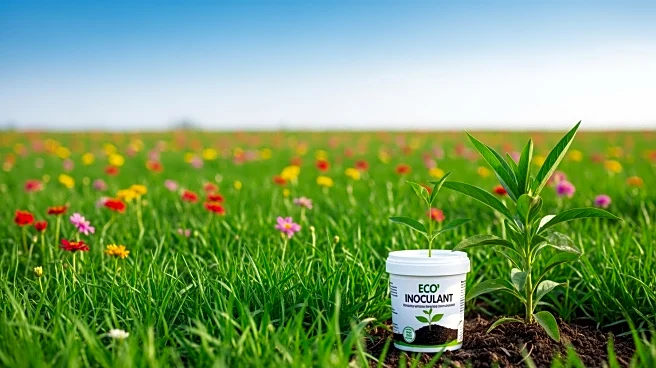What's Happening?
The agricultural inoculants market is projected to grow with a compound annual growth rate (CAGR) of 0.67% from 2025 to 2032. Inoculants play a crucial role in enhancing crop productivity and sustainability
by promoting beneficial microbial activity in soil and plant systems. This market growth is driven by increasing demands for efficient agricultural practices, technological advancements, and a shift towards sustainable farming. Innovations such as biostimulants and precision agriculture are shaping the market, with key players like Bayer, BASF, and Novozymes investing in research and development to create more effective inoculant formulations.
Why It's Important?
The growth of the agricultural inoculants market is significant as it aligns with global trends towards sustainable agriculture. As the global population continues to rise, the need for efficient and environmentally friendly farming practices becomes more critical. Inoculants offer a natural solution to enhance soil fertility and crop yields without the harmful side effects of chemical fertilizers and pesticides. This shift towards sustainable practices is supported by government regulations and consumer demand for organic produce, highlighting the market's potential to contribute to food security and economic stability.
What's Next?
The agricultural inoculants market is expected to continue evolving with advancements in biotechnology and increased awareness of sustainable practices. Companies are likely to focus on developing enhanced inoculant formulations that improve shelf life and effectiveness under various environmental conditions. The integration of digital tools in agriculture, such as precision farming technologies, will also influence how inoculants are applied and tested, enabling more targeted applications that maximize yield. As the market grows, it will likely adapt to changing agricultural practices and consumer demands, further enhancing the reach and efficacy of agricultural inoculants.









